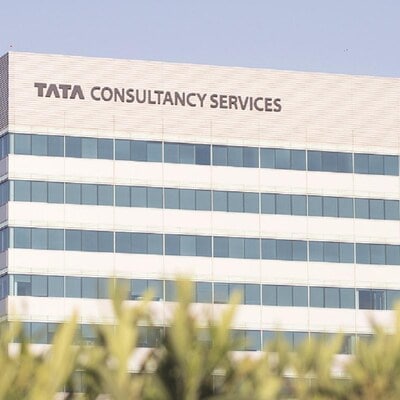Clients prioritise cost efficiency; discretionary deal demand low: TCS CEO
In an analyst call on Thursday, Tata Consultancy Services Chief Executive Officer K Krithivasan elaborated that cost optimisation, vendor consolidation, customer experience transformation, and supply chain modernisation remain central themes for clients. “Overall, clients continue to prioritise cost efficiency through transformation and demand for discretionary deals with low immediate return on investment remains relatively low,” he added.
Nevertheless, there was an uptick in BFSI spending — a key sector for TCS.
Click here to connect with us on WhatsApp
The IT services major’s Q2 performance was in line with the trends observed in Q1, with robust growth in regional markets partially offset by an underwhelming showing in the US and Europe. Domestic growth was particularly sharp — up 95.2 per cent year-on-year and 21.3 per cent sequentially — largely driven by the BSNL deal. Middle East & Africa, Asia-Pacific, and Latin America also saw growth at 7.9 per cent, 7.5 per cent, and 6.8 per cent, respectively. In contrast, North America declined by 2.1 per cent, while within Europe, the UK grew by 4.6 per cent and Continental Europe by 1.8 per cent.
Sharekhan’s head of research, Sanjeev Hota, described TCS’s results as “weak,” citing misses on both revenue and margin estimates, “though revenues miss was a tad below our estimates; margins performance surprised us negatively”. He further said: “TCV wins at $8.6 billion was below our expectations – the eight quarter average is $9.6 billion.” On a brighter note, employee headcount increased for the second consecutive quarter, rising by 0.9 per cent, while the BFSI vertical grew by 1.9 per cent in US dollar terms.
Sector-wise, growth was driven by energy, resources, and utilities (up 7 per cent) and manufacturing (up 5.3 per cent). BFSI, TCS’s largest vertical, saw a modest 0.1 per cent year-on-year uptick.
TCS added 5,762 employees during the quarter, bringing total hiring for H1FY25 to 11,000. It saw increased adoption of Generative AI solutions, moving from proof-of-concept stages to full-scale implementations. Krithivasan highlighted the establishment of interdisciplinary AI offices that integrate business and technology teams, with active engagements nearly doubling. “We now have around 600 engagements in this space. We have seen the number of engagement in production jump to 86 in this quarter,” he added.
The Q2FY25 operating margin stood at 24.1 per cent, impacted by third-party expenses and investments in talent and infrastructure. CFO Samir Seksaria attributed this margin contraction — down 60 basis points sequentially — to strategic spending necessary for sustainable growth.
“Our disciplined execution resulted in superior cash conversion. Our longer-term cost structures remain unchanged, and we remain confident in our ability to continue delivering industry leading profitable growth.”
“Gartner believes that TCS will remain a strategic partner to clients as its strategy is in line with market expectations and with its clients’ digital transformation ambitions. In addition, Gartner has raised its IT spending forecast in Q2CY24 by 1.3 percentage points (from 7.6 per cent to 8.9 per cent), reflecting price increases in servers, devices, and software. Based on insights from Gartner’s Forecast Analysis on Global IT Spending and TCS’s solid business pipeline, we are confident that TCS will continue its growth trajectory in the coming quarters,” said Biswajit Maity, senior principal analyst, Gartner.
First Published: Oct 10 2024 | 11:19 PM IST
